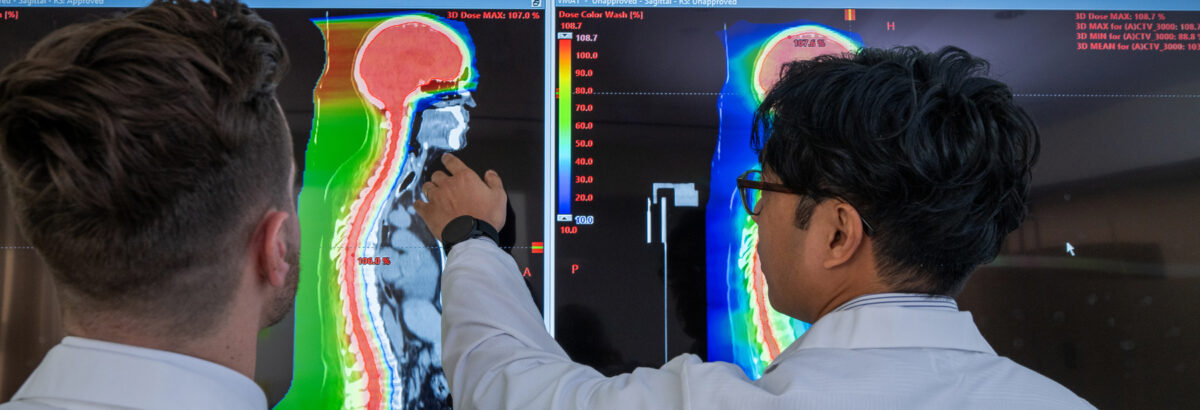Head and Neck Tumors FAQs
Frequently Asked Questions
These answers to frequently asked questions can help you decide whether proton therapy for head and neck tumors is right for you.
What types of head and neck tumors can be treated with proton therapy?
Proton therapy is a noninvasive treatment option for many types of head and neck tumors including:
– Tonsil, base-of-tongue cancer, and other cancers of the oropharynx
– Oral cavity cancers * Nasopharynx cancers
– Salivary gland cancers
– Nasal cavity and paranasal sinus cancers including esthesioneuroblastoma
– Skin cancers of the head and neck region with perineural invasion or lymph node metastases
– Tumors of the eye/orbit
– Parotid, lacrimal, and other salivary gland cancers
– Thyroid cancers
– Laryngeal cancers
– Recurrent or second primary head and neck tumors after prior radiotherapy treatment
Proton therapy can be a primary treatment for these cancers or may be given in conjunction with surgery and/or chemotherapy
What are the benefits of proton therapy for head and neck tumors?
Proton therapy can be an effective treatment for head and neck cancers because it can deliver a high dose of radiation to the tumor with extraordinary precision. Treating these tumors with conventional photon radiation therapy exposes the nearby healthy tissues—such as the oral mucosa, gums, salivary glands, jaw bones, swallowing muscles, voice box, eyes, ear canals, brain, brainstem and spinal cord—to more radiation and can increase the risk of late toxicities or developing a new cancer.
Are there side effects?
Side effects of proton therapy depend on the exact area of the body receiving treatment, the tumor size, and the types of healthy tissue near the tumor. The most common side effects of radiation therapy for head and neck tumors are skin reactions, dry mouth, and trouble swallowing. Your doctor will help manage any side effects during and after proton therapy.
Can I have proton therapy if I had previous radiation to the head or neck for another type of cancer?
Potentially—In some cases, patients who previously received radiation for a prior head and neck cancer may require a subsequent course of radiation in the same region. In these scenarios, proton therapy can be especially beneficial to significantly reduce the overlap of excess radiation to nearby normal tissues and organs. Reducing the cumulative dose to the normal tissues may reduce the risk of side effects, allowing for more radiation dose to be focused to the tumor, and for a better chance of a cure.
How many treatments are required?
The number of treatments varies according to the unique characteristics of your tumor. Treatment is usually administered five days a week for one to seven weeks
Does the New York Proton Center offer clinical trials for head and neck tumors?
With an active research program, we are pleased to offer a growing number of clinical trials for a variety of cancers. We are currently enrolling eligible patients in the following head and neck studies:
MSK 16-1416 A Phase II Randomized Study of Proton Versus Photon Beam Radiotherapy in the Treatment of Unilateral Head and Neck Cancer: NCT02923570
ECOG-ACRIN EA3191 A Phase II Randomized Trial of Adjuvant Therapy with Pembrolizumab after Resection of Recurrent/Second Primary Head and Neck Squamous Cell Carcinoma with High-Risk Features: NCT04671667
Proton Therapy for Head and Neck Tumors
For more information about proton therapy for head and neck tumors, download our PDF.



